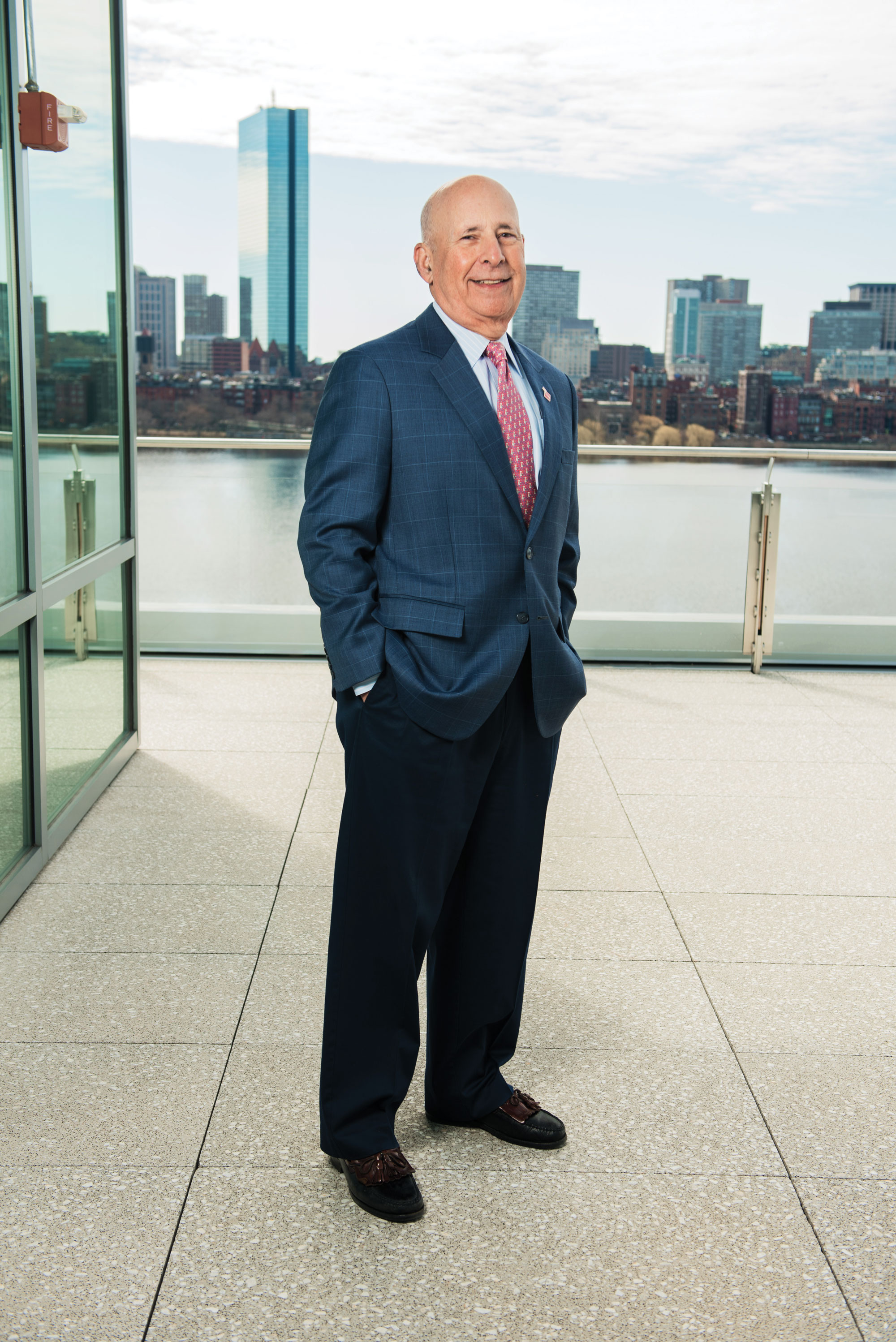
Joe Levitch ’69 may live in Chicago, but he visits campus almost every month to take part in diverse MIT programs that encourage student success.
A direct connection.
Levitch became an MIT volunteer after getting involved with the MIT Priscilla King Gray Public Service Center. “Hearing stu-dents present their service projects, I was hooked,” he says. Now he mentors MIT undergrads through multiple programs, especially since moving to a part-time schedule in his career as a man-agement and human resources consultant. “Since I’m approaching 50 years of pro-fessional experience, it’s exciting to know that I can help young people navigate the decisions they’re facing,” he says.
Meaningful commitments.
Levitch, who was able to attend MIT because of financial aid, also supports scholarships through an endowed fund. “That’s been an import-ant part of my motivation, since I was able to come here because of someone else’s generosity,” he says. Giving back was also something he shared with his late spouse, Vikki. Their love of tennis led to his founding an annual leadership award for a member of the MIT women’s varsity tennis team in her memory. Inspired by the success of this program, Levitch is currently helping to create a leadership development program for all of MIT’s student athletes.
Evolving opportunities.
“It’s been phe-nomenal to witness how the MIT student experience has changed,” says Levitch, who can scarcely believe he’s now “one of those ‘old guys’ in a red blazer.” He adds, “I strongly believe in the Institute’s mission, and supporting students in their pursuits is the most meaningful way that I can com-mit both my time and my philanthropy.”
Help MIT build a better world.
For more information, contact David Woodruff: 617.253.3990; daw@mit.edu or visit giving.mit.edu
Keep Reading
Most Popular
Large language models can do jaw-dropping things. But nobody knows exactly why.
And that's a problem. Figuring it out is one of the biggest scientific puzzles of our time and a crucial step towards controlling more powerful future models.
The problem with plug-in hybrids? Their drivers.
Plug-in hybrids are often sold as a transition to EVs, but new data from Europe shows we’re still underestimating the emissions they produce.
Google DeepMind’s new generative model makes Super Mario–like games from scratch
Genie learns how to control games by watching hours and hours of video. It could help train next-gen robots too.
How scientists traced a mysterious covid case back to six toilets
When wastewater surveillance turns into a hunt for a single infected individual, the ethics get tricky.
Stay connected
Get the latest updates from
MIT Technology Review
Discover special offers, top stories, upcoming events, and more.